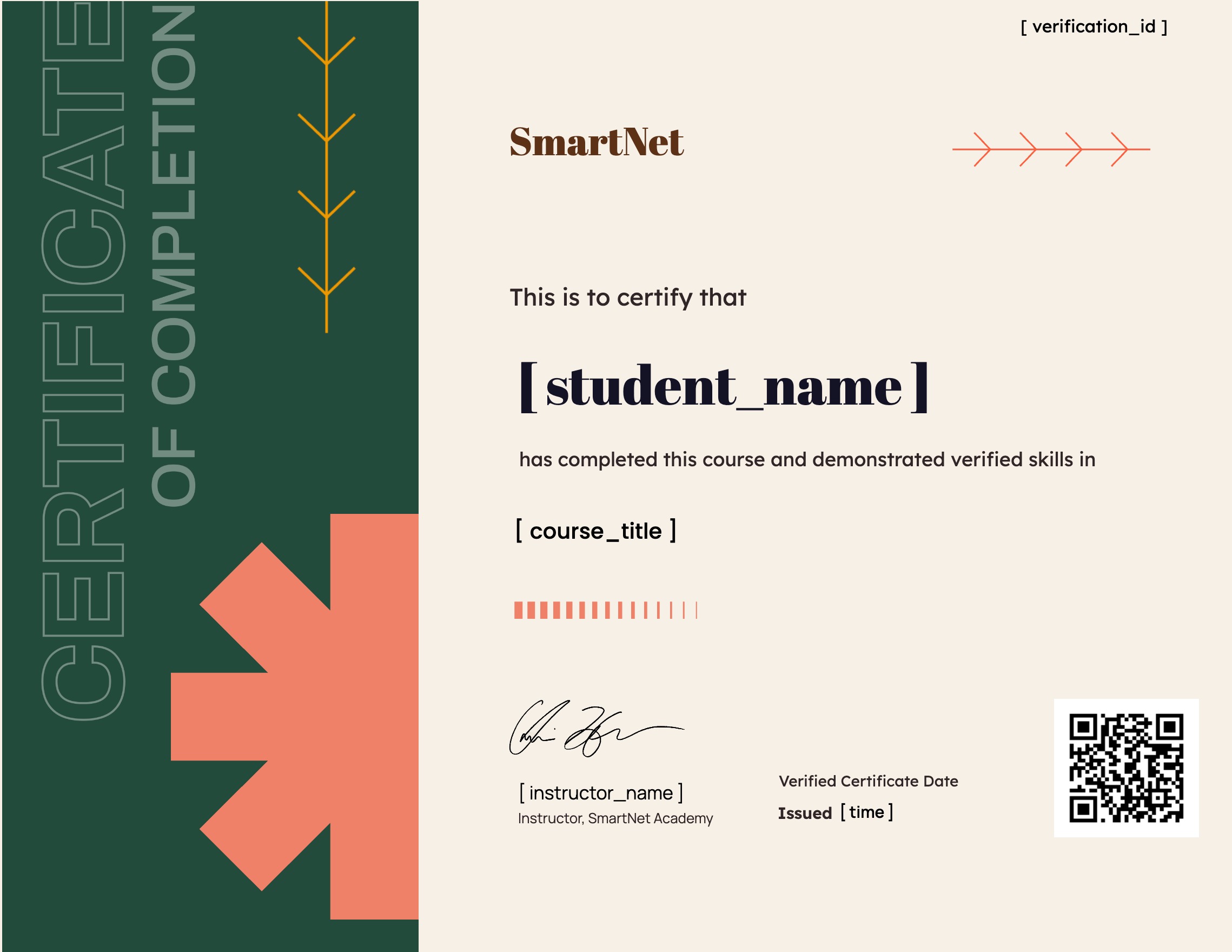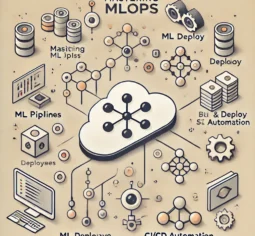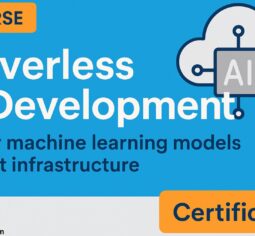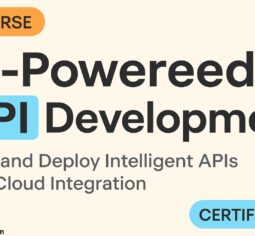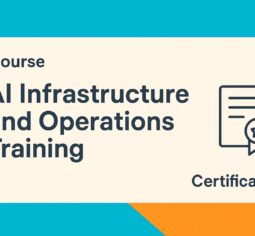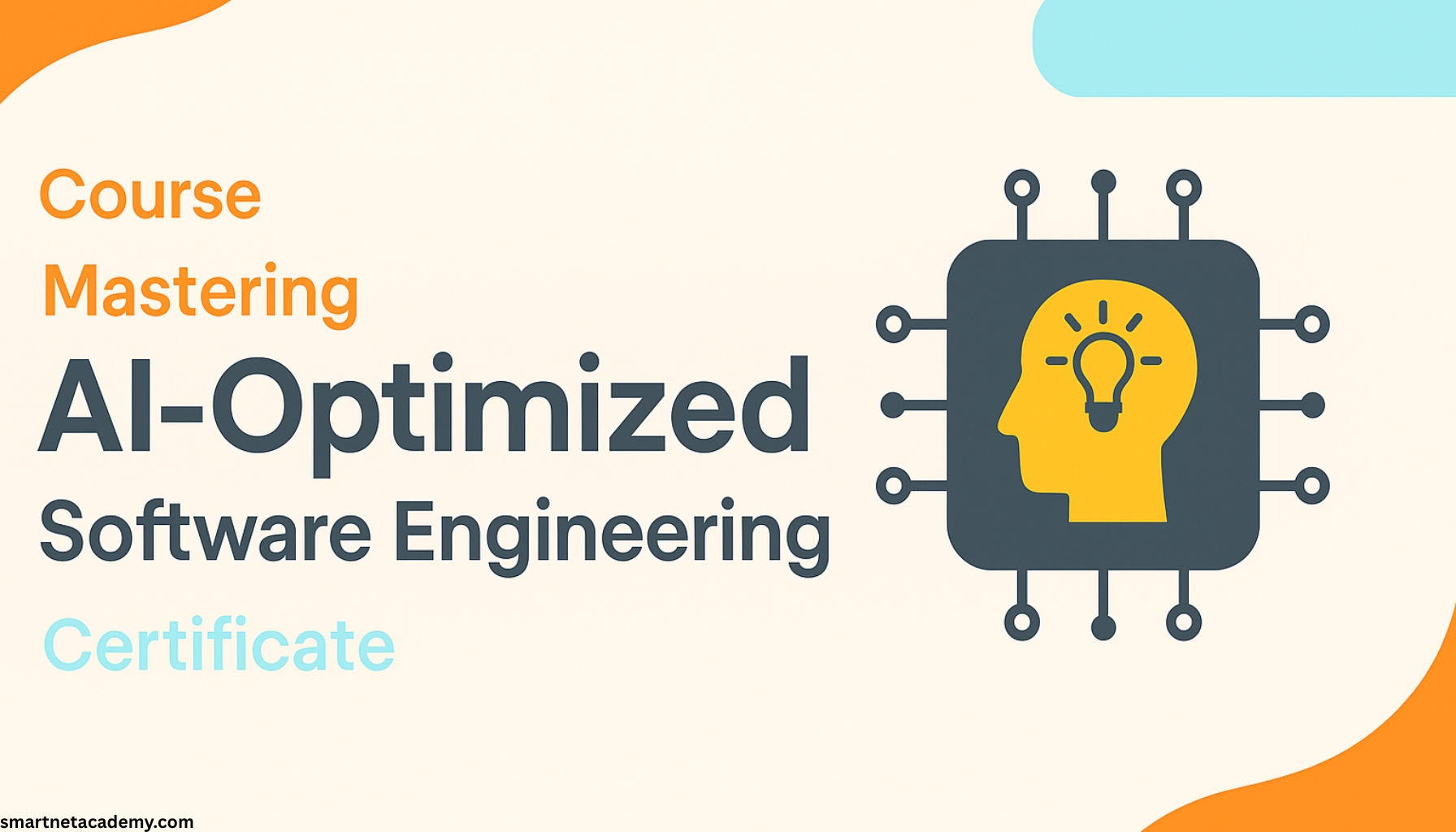The field of cloud computing has reached a point where scalability and automation have become essential elements to provide responsive and intelligent solutions that operate efficiently. The surge in data volume along with rising AI application requirements forces organizations to rethink their modern workload deployment and management strategies. Container orchestration platforms such as Kubernetes have become the premier solution for automated deployment and management of containerized applications to satisfy current market requirements.
Kubernetes & AI: Mastering Scalable Cloud Integration, offered by SmartNet Academy, is a future-ready course built to equip learners with the essential tools and strategies to thrive in cloud-native environments. This course delivers both fundamental knowledge and specialized expertise to help DevOps engineers optimize workflows as well as cloud architects build scalable solutions and AI specialists provide real-time insights.
Your initial learning step involves understanding both containerization fundamentals and Kubernetes architectural design. Real-world applications will help you understand how Kubernetes supports both deployment of AI applications and their scaling and automation. Hands-on practical labs and cloud-based projects will teach you to manage complex AI systems with confidence while optimizing resource allocation and maintaining system reliability in multi-cloud and hybrid environments.
Core Kubernetes Concepts for AI Infrastructure
The course begins with a robust foundation in Kubernetes, ensuring that learners fully understand the platform that powers scalable, resilient, and flexible AI infrastructure. Kubernetes has become the industry standard for managing containerized applications in the cloud, and for good reason—it offers an automated, declarative approach to deploying and managing applications, which is especially critical for artificial intelligence workloads that are compute-intensive and data-driven.
In this section, learners will explore the building blocks of Kubernetes architecture:
-
Pods, Nodes, and Clusters: Understanding how workloads are distributed and managed at scale
-
Services and Networking: Exposing applications, enabling communication, and load balancing
-
Resource Management and Scheduling: Allocating CPU, memory, and GPU resources efficiently for AI training and inference
-
Namespaces and RBAC: Implementing multi-tenant environments with proper security and access controls
-
Helm Charts and Manifests: Streamlining deployment and managing Kubernetes applications as reusable templates
These topics will be taught through hands-on activities and visual breakdowns to reinforce theoretical concepts with practical execution. Learners will also gain exposure to kubectl, the command-line tool for interacting with Kubernetes clusters, which is essential for managing deployments, services, and logs in real-time.
By the end of this module, students will have:
-
Deployed and configured their first Kubernetes cluster
-
Understood how to orchestrate applications across distributed infrastructure
-
Built a working knowledge of the tools and best practices for managing scalable environments
These foundational skills prepare learners for the more complex AI workflows introduced in the later stages of the course, ensuring they are ready to build, scale, and secure modern AI applications from the ground up.
Deploying AI Models on Kubernetes: From Lab to Production
Once learners have mastered Kubernetes fundamentals, the course transitions into real-world applications by focusing on deploying AI models in scalable cloud environments. AI workloads—particularly those involving machine learning models—require consistent, resource-efficient infrastructure that can handle training, inference, and version control at scale. Kubernetes provides the framework to manage these tasks seamlessly, and this module empowers learners to build and execute those capabilities step-by-step.
The module begins by introducing Docker containerization of AI models, including popular frameworks such as TensorFlow, PyTorch, and Scikit-learn. Learners will containerize models, define dependencies, and configure environments optimized for reproducibility and portability.
Following containerization, learners will use essential Kubernetes components to orchestrate AI workflows:
-
Jobs and CronJobs for automating training or retraining processes
-
Deployments to serve real-time inference models
-
StatefulSets to manage state-dependent services like sequence modeling or time-series forecasting
This section also explores industry-standard tools for serving models:
-
TensorFlow Serving for high-performance TensorFlow model delivery
-
KServe (formerly KFServing) for abstracting model serving across frameworks, enabling seamless autoscaling and GPU utilization
Scalability is a key focus, with learners implementing Horizontal Pod Autoscalers (HPA) to manage variable demand, such as fluctuating API traffic for prediction services. You’ll monitor resource usage and define policies that automatically increase or reduce replicas to meet performance targets efficiently.
By the end of this module, learners will:
-
Deploy containerized AI models across Kubernetes clusters
-
Configure scalable, production-grade AI services
-
Implement strategies for versioning, updating, and rolling back models safely
-
Ensure consistent availability and performance of inference endpoints
This hands-on, scenario-driven module prepares learners to bridge the gap between experimentation and enterprise AI production.
Designing Scalable Cloud Environments for AI Workloads
Scalability lies at the heart of deploying artificial intelligence solutions that can meet growing demands, process high volumes of data, and maintain performance consistency across global applications. In this module, learners focus on designing robust, AI-ready infrastructure that is capable of supporting dynamic workloads in real-time, whether on a public cloud, private cloud, or hybrid architecture.
The module begins by introducing cloud-native architectural patterns specifically tailored for AI use cases. Learners will explore microservices-based deployments, stateless versus stateful design principles, and loosely coupled components that allow AI applications to scale horizontally without downtime.
A key focus is placed on integrating Kubernetes with GPU nodes, which are essential for accelerating deep learning and computationally intensive tasks. Students will learn how to:
-
Configure Kubernetes node pools to accommodate GPU workloads
-
Use device plugins for NVIDIA GPU support
-
Manage GPU resource requests and limits for specific pods
Handling large datasets is another core requirement for AI systems. This module walks learners through persistent storage management and data pipeline orchestration using Kubernetes volumes, dynamic provisioning, and integration with tools like Apache Kafka and MinIO for unstructured data handling.
To further optimize performance, learners are introduced to distributed training strategies using frameworks like Horovod, TensorFlow Distributed, and PyTorch Distributed. They will understand how to split training across multiple nodes, synchronize model parameters, and handle failures during parallel training jobs.
By the end of this module, learners will be able to:
-
Design resilient infrastructure for AI that scales as demand grows
-
Configure cloud-native environments that balance performance and cost
-
Optimize compute, memory, and storage for AI tasks
-
Support distributed AI workloads with fault-tolerant design principles
These architectural competencies will prepare learners to confidently deploy AI solutions in high-demand, real-world environments where reliability and responsiveness are mission-critical.
Automating AI Workflows with CI/CD Pipelines in Kubernetes
Automation is key to delivering AI applications reliably and efficiently. This module introduces DevOps strategies tailored for AI in Kubernetes:
-
Creating automated CI/CD pipelines for AI model updates
-
Using Jenkins, GitHub Actions, and ArgoCD with Kubernetes
-
Deploying retraining workflows using Kubeflow Pipelines
-
Versioning and rollbacks for AI microservices
You’ll walk away with a framework for integrating your development and deployment processes, ensuring rapid iteration and delivery of AI features.
Monitoring, Security, and Reliability in Kubernetes AI Systems
Maintaining secure and resilient systems is essential when deploying AI at scale. This section dives into:
-
Real-time performance monitoring with Prometheus and Grafana
-
Implementing logging solutions like ELK and Loki
-
Securing Kubernetes clusters and AI data pipelines
-
Configuring network policies and secrets management
You’ll also explore best practices for ensuring fault tolerance, disaster recovery, and compliance in AI deployments.
Capstone Project: Deploying a Scalable AI Solution on Kubernetes
To reinforce your learning, you’ll complete a capstone project that simulates a real-world AI deployment scenario. You’ll:
-
Design an end-to-end architecture for deploying an AI model
-
Containerize, deploy, and serve the model using Kubernetes
-
Implement monitoring, logging, and scaling mechanisms
-
Present your solution with documentation and metrics
This hands-on project serves as both a learning milestone and a portfolio piece you can showcase to employers or clients.
Who This Course Is For and What You’ll Gain
Professionals seeking to advance in the rapidly changing field that combines cloud computing with artificial intelligence should take this course. By combining your basic knowledge of cloud environments with containerization and AI frameworks this course will enable you to apply these skills to enterprise-level projects. Whether you’re stepping into a new MLOps role, expanding your DevOps expertise, or aiming to bring scalable intelligence into your AI-powered applications, this training will elevate your capabilities and career prospects.
The course is particularly beneficial for:
-
Cloud architects looking to deploy AI models efficiently across infrastructures
-
DevOps engineers eager to automate and optimize AI workflows
-
Data scientists wanting to scale and serve their models reliably
-
Software engineers integrating AI components into microservices
-
IT professionals modernizing legacy systems with AI integrations
Upon completing Kubernetes & AI: Mastering Scalable Cloud Integration, you will:
-
Master Kubernetes as a platform for orchestrating scalable AI workloads
-
Build real-world experience through hands-on labs and end-to-end projects
-
Learn to deploy, scale, and monitor AI models using cloud-native tools
-
Understand how to implement fault tolerance and automation for AI services
-
Earn a Certificate of Completion from SmartNet Academy to validate your skills
-
Be equipped to lead or support enterprise AI integration initiatives
This course isn’t just about theory—it’s about preparing you to solve real business challenges with confidence and cutting-edge technology.
Why Choose SmartNet Academy for Kubernetes and AI Training?
Choosing the right training provider is crucial when it comes to mastering complex, in-demand skills like Kubernetes and AI integration. SmartNet Academy stands out by offering a well-rounded, application-focused learning experience tailored to the modern tech professional. We are committed to delivering high-impact, future-ready education that bridges the gap between theoretical knowledge and real-world application.
This course, Kubernetes & AI: Mastering Scalable Cloud Integration, is designed by industry practitioners who understand the everyday challenges of deploying AI in dynamic, cloud-native environments. Our curriculum emphasizes practical solutions, hands-on experience, and direct engagement with the tools and workflows used by today’s top organizations.
As a learner, you’ll benefit from:
-
Hands-on labs and interactive content that simulate real-world environments
-
Access to peer forums and expert guidance to reinforce your learning
-
Lifetime access to all course materials and future updates
-
A globally recognized certificate that validates your skills and boosts your professional credibility
Beyond the content, SmartNet Academy fosters a learning environment that prioritizes support, collaboration, and continuous growth. Our courses are self-paced but never solitary—learners are part of an active community of professionals who share insights, solve problems, and stay ahead of industry trends.
With the demand for scalable AI systems growing across every sector, mastering Kubernetes and AI isn’t just a technical upgrade—it’s a strategic investment. Join SmartNet Academy and take the next transformative step in your cloud and AI career.










